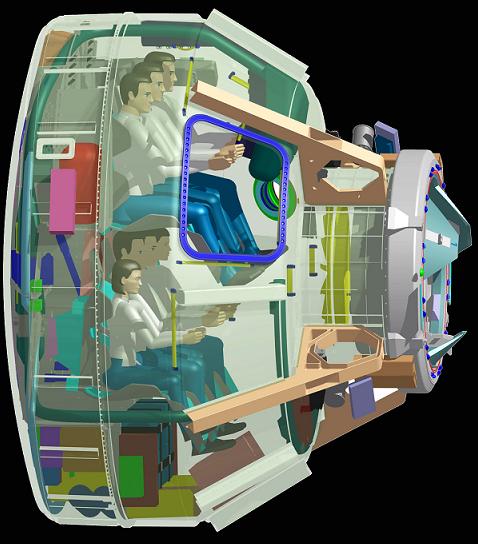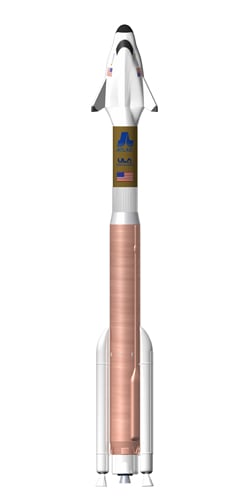This article is more than 1 year old
NASA funds commercial Shuttle-replacement spaceships
Cheese capsule battles rivals for ISS ferry work
NASA has chosen the companies which will receive cash in its second round of Commercial Crew Development contracts. The CCDev2 funding is intended to lead to viable commercial manned spacecraft, which NASA could then book seats on in order to keep the International Space Station crewed up in future.

Boeing's offering. Not yet built.
At the moment, once the Shuttles retire, there will be a period of some years before NASA can deploy a manned space launch system of its own: unless CCDev can step up, for that time the only way for US astronauts (or any others) to get to the Station will be aboard Russian Soyuz ships.

Dream Chaser. Still a dream, for now
The official US line on manned space exploration now appears to be that NASA should no longer get massively involved in launch to orbit as it has been up to now. The Apollo and Shuttle eras saw massive space-agency workforces operating hardware supplied by other, equally massive, workforces at the established rocket contractors such as Boeing and Lockheed. The idea is now to let smaller and less costly commercial operations send astronauts into space, while NASA itself concentrates on the new technologies which could practicably carry them onward to the planets.
"We're committed to safely transporting US astronauts on American-made spacecraft and ending the outsourcing of this work to foreign governments," NASA Administrator Charles Bolden said, announcing the CCDev2 inkings. "These agreements are significant milestones in NASA's plans to take advantage of American ingenuity to get to low-Earth orbit, so we can concentrate our resources on deep space exploration."
The recipients of the CCDev2 cash are as follows:
Blue Origin, the space venture bankrolled by Amazon kingpin Jeff Bezos, which gets $22m. Blue Origin has no orbital launcher system of its own – the company's New Shepard rocket-hopper vehicle is to be capable of suborbital flight only – but it did some work on reusable capsule design under CCDev1. Under CCDev2 the firm says it will develop a space capsule for launch atop an existing Atlas V booster: down the road it will design a reusable booster which comes back down to land vertically a bit like the New Shepard.
